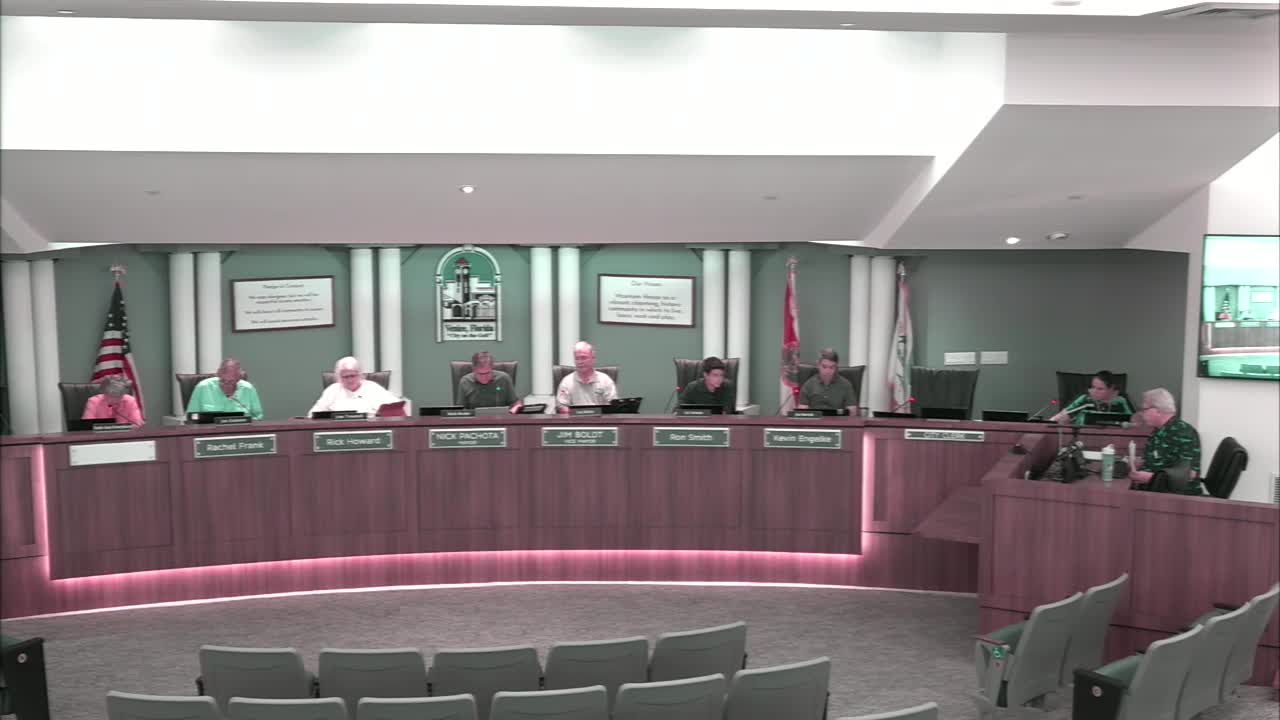HAPB weighs shifting review authority from staff to board and use of Secretary of the Interior standards
Get AI-powered insights, summaries, and transcripts
Subscribe
Summary
Board members and staff debated proposed code changes that would shift some review authority for locally registered properties from the Historic Resources Manager to the Historic and Architectural Preservation Board and clarified whether the board should formally use Secretary of the Interior standards.
Board members, staff and the planning director spent the bulk of the meeting reviewing proposed revisions to the municipal code (Section 7 and related sections) that would change review authority for historic properties.
John Barrick, a long-time HAPB member who prepared the proposed edits, described language that would clarify the board’s responsibilities and in some drafts shift specific review authority now held by the historic resources manager to the board. Nicole Tremblay, senior planner for the City of Venice, reviewed the proposed edits line by line and advised the board on which additions restated existing duties and which would create new duties or require code-wording changes.
Harry Klinkhammer, historical resources manager, cautioned against fully eliminating the staff-level, one-on-one review and guidance that applicants now receive. “To just completely remove that very important face to face layer of the process, I would caution you about that,” Klinkhammer said, explaining that staff assists applicants with material selection and the administrative process before a public hearing. Several board members responded that they want to remain “in the loop” and proposed a two-step process where staff performs an initial technical review and then the board sees an application in near-final form for approval. Planning and zoning director Roger Clark likewise said he would not present incomplete or improperly prepared items to the board and favored staff vetting before board hearings.
A major point of contention was whether the board should use Secretary of the Interior standards (SOI) when evaluating tax-exemption applications and alterations for locally registered properties outside the city’s VHP (Venice historic) style. Staff noted that Chapter 66 of the city code (the ad valorem tax exemption) already references the SOI standards for tax-exemption review and that some cases — notably a recent project at 640 West Venice — had been reviewed under SOI standards. Klinkhammer said he already uses SOI guidance for non-VHP local-register listings and that many federal programs and tax-credit processes rely on those standards. Tremblay and the planning commission previously expressed concerns about adopting SOI standards more broadly because of potential added workload or perceived restrictions; board members said the standards are the nationwide norm for historic-preservation review and argued they should be authorized tools for the board.
The board also discussed exemptions for structures that are not built in the VHP style: current language would exempt non-VHP structures in the historic district from some CAC (Certificate of Appropriateness) requirements, avoiding undue burden on buildings that do not meet VHP style criteria. Members asked staff to ensure that the exemption language is applied consistently so that routine material replacements (for example, roofing material swaps that do not alter prominent historic fabric) do not unnecessarily trigger full board review.
Nobody voted on code text at this meeting. Instead, members asked staff to prepare a redlined draft that preserves staff’s front-line role for intake and technical review while adding a clear pathway for board review and approval of alterations and tax-exemption-related COAs. Several board members asked staff to craft language that would explicitly allow the board to apply SOI standards in the tax-exemption and local-register alteration context and to include an explicit, no-additional-cost consultation allowance (referencing CLG guidance) when outside expertise is needed but not budgeted.
Staff said it will produce draft code amendments with strike-through/underline edits for review at a future meeting. The board directed staff to return language reflecting the compromise: maintain staff intake and technical vetting, add a formal board review layer for local-register alterations and tax-exemption reviews, and clarify exemptions for non-VHP structures.
